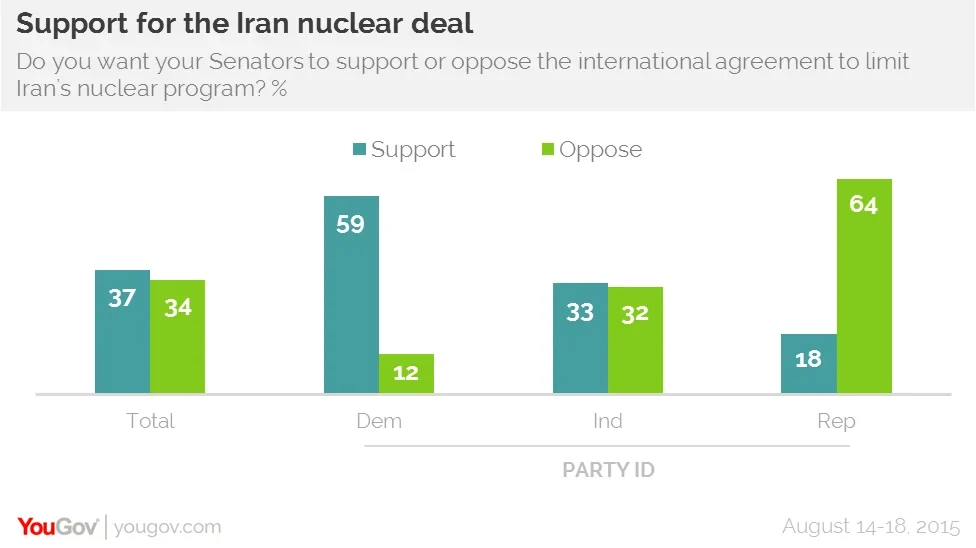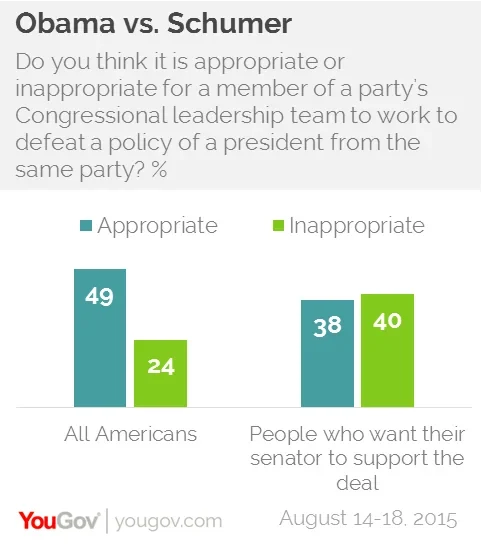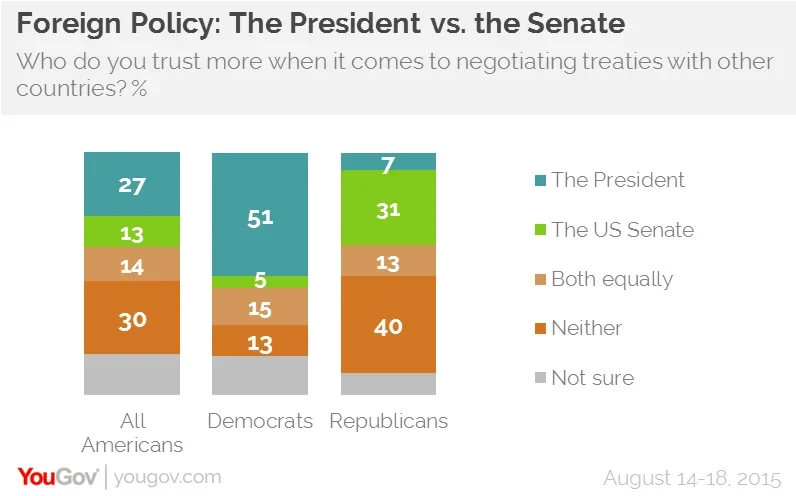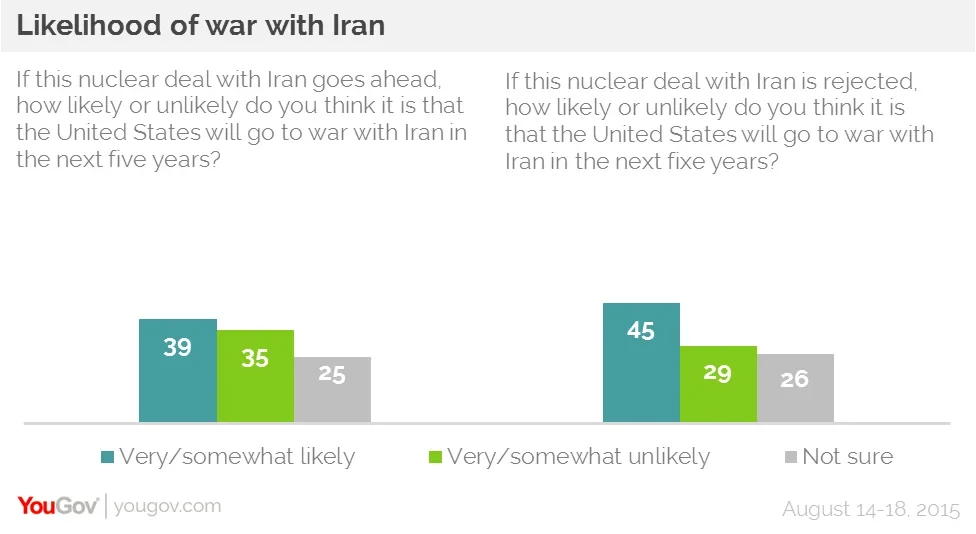Many Americans are pessimistic about the prospect of peace with Iran and even many supporters of the deal are OK with Schumer's opposition
Public pessimism over the future of U.S-Iran relations may have created a built-in opposition to any U.S. agreement with that country. While Americans in the latest Economist/YouGov Poll generally think negotiations are a good idea, they also think the deal could have been better, and are divided on whether or not their Congressional representatives should support the agreement.
The depth of distrust of Iran, which dates back to the seizure of American hostages in Tehran more than 35 years ago, is clear in the way Americans answer several poll questions:
- Only 17% believe Iran will be considered a friendly country in their own lifetime. While those under 30 are the most optimistic – after all they will have longer lifetimes – only 30% of them are hopeful.
- Only one in five overall have even some trust that Iran will live up to any agreement, and by two to one, the public is dubious that inspectors will be able to verify Iran’s compliance.
By 48% to 25%, Americans think a better deal could have been negotiated. Yet there is an even division on what Congress needs to do. Just about as many say they want their Senators to support the agreement as want them to vote to oppose it. On this, as on so many things, Americans divide by party, with Democrats supporting the agreement, and Republicans overwhelmingly in opposition.

There is some willingness to let Congress and its leaders do what they want. Relatively few Americans have a problem with Senator Chuck Schumer’s decision to oppose the agreement, even though he is member of the Senate Democratic leadership. More say it is appropriate for him to take a position against the foreign policy of a President of his own party than disagree. And even those who want their own Senator to vote for the agreement are as likely to say Schumer’s opposition is appropriate for a party leader as to disagree.

Those who favor the agreement are less likely to think it is appropriate for Schumer to actively work against the agreement: although the public overall says that is appropriate by 49% to 24%, supporters disagree 47% to 35%.
There is even approval for letting Congress override an expected Presidential veto, should Congress vote to oppose the agreement. However, one in three aren’t sure what Congress should do in that circumstance. Even 21% of those who want Congress to support the agreement would be willing to let Congress override a presidential veto of an expected Congressional rejection.
Americans don’t always side with Congress. The invitation House Speaker John Boehner made to Israeli Prime Minister Benjamin Netanyahu to address Congress and state his objection to the Iran was slightly more likely to be seen as inappropriate as appropriate. And Americans are twice as likely to trust the President as they are to trust the Senate to negotiate – though nearly a third trust neither.

Even more Republicans (40%) say they trust neither part of government, slightly more than the total that choose either the Senate (31%) or the President (7%).
But the fate of Israel is a factor for many. By 40% to 30%, Americans say it is more important to maintain relations with Israel than it is to have a nuclear deal with Iran. 76% of those who want their Senators to oppose the agreement say this. And by 41% to 25%, Americans believe the agreement will make Israel less, not more, safe.
But understanding these survey results comes back to the lack of trust Americans have in Iran. With or without a deal, more Americans say war with Iran is likely in the next five years than this it is unlikely.

See the Economist/YouGov results.
Economist/YouGov poll archives can be found here.









